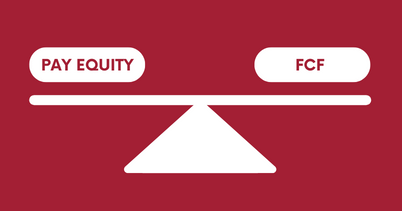As a job seeker it may seem daunting, but fortunately, most employers are prepared to negotiate and shouldn’t be surprised when the notion arises. If done tactfully, negotiating a job offer can be very beneficial to you and help you start off on the right foot with your new employer.
What Can Be Negotiated?
| Usually Negotiable | Sometimes Negotiable | Usually Non-Negotiable |
|---|---|---|
| Offer Deadline | Telecommuting | Vacation |
| Start Date | Position Title | Health Insurance |
| Salary | Position Location | Retirement Savings Plan |
| Signing Bonus | Performance Review Timing/Frequency | Non-Disclosure Agreements |
| Relocation Expenses | Non-Compete Agreements Timeframe | Other benefits that apply to all employees |
Negotiation in 10 Steps
- Initially Respond. Respond gratefully even if the offer is below expectations. Ask to have some time to think about it, and agree on a response date.
- Understand the Offer. Review the terms of the offer, and ask questions about job components, compensation, career advancement opportunities, stock options, benefits, time off, start date, etc.
- Conduct Extensive Research. Know your market value–What are comparable salaries and positions? Learn more about pay equity.
- Determine and Prioritize Your Needs and Wants. Decide what is a need versus a want, and prioritize those most valuable to you. How well does the position as it stands meet your needs? Where are you flexible? Where are you not? What is the minimum you would accept for whatever element you are negotiating on? How much time do you need to make a decision on the offer? What is the lowest salary you will consider? How important is job security to you?
- Develop a Strategy. Plan a realistic course of action based on solid preparation and a review of all resources, including your own strengths and weaknesses as a candidate. Only negotiate if you are seriously considering the offer. If you have other offers with pending deadlines be sure to time your negotiations accordingly, and don’t wait until the last minute.
- Contact the Organization. Identify who is best to negotiate with — Human Resources? The hiring manager? Once you know, call the employer to present your items to be negotiated–be enthusiastic and reassure them of your interest in the position.
- Receive a Response to Your Offer. The employer will inform you what requests they can and can’t fulfill. Remember, the worst thing they can say is “No”.
- Renegotiate If Necessary. You may find it appropriate to conduct a second round of negotiation depending on the situation. Don’t be uncompromising or demanding–tact and reason are crucial in delicate circumstances such as this.
- Get Terms in Writing. Always make sure you have an offer in writing prior to accepting to confirm all parties are on the same page.
- Decide. Review your needs and goals to determine if the negotiated offer is the right fit. Ideally, you want to find a balance–the negotiation process will be a give-and-take scenario where each side (you and the employer) needs to feel the end result is win-win. Provide your response as soon as possible, especially if you decide to decline the offer.

How to Decline an Offer
- Always be polite regardless of your response to an offer.
- Start off with a positive statement thanking the organization for their offer.
- Let them know that you will unfortunately have to decline.
- Provide them with an appropriate reason for the decline (you have another offer you are going to pursue, the location, the benefits, etc.).
- Thank them again and wish them well.

Graduating Student Outcomes
Learn about average salaries for graduating students, top employers/industries, graduate school admissions data and more.








